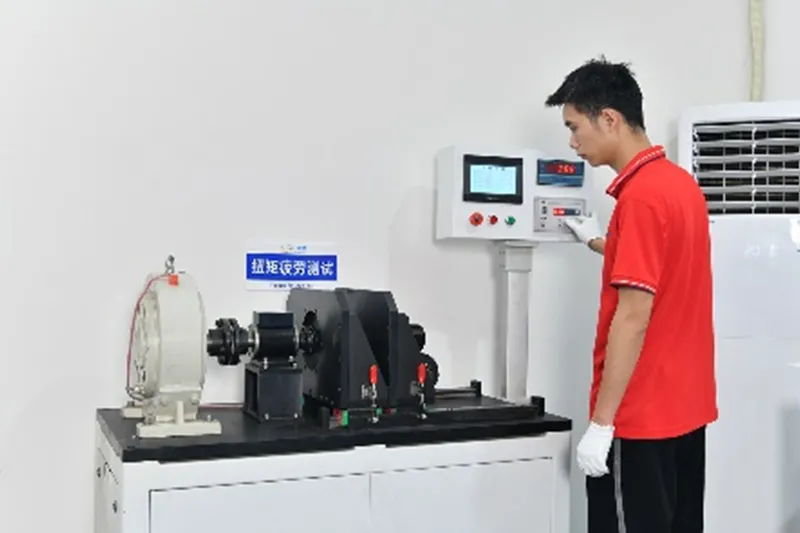Torque and Fatigue Test
Torque and Fatigue Testing: Verifying Long-Term Strength and Reliability
What Is Torque and Fatigue Testing?
Torque and fatigue testing simulate long-term operational loads on a reducer to assess durability, torque transmission efficiency, and structural integrity. Test benches apply cyclic torque and monitor performance over extended time to validate design strength and operational reliability.


What Defines a High-Quality Fatigue Test?
Effective fatigue testing includes:
- Programmable torque cycles over time
- Real-time torque and vibration monitoring
- Temperature rise and bearing load evaluation
- Wear pattern analysis post-test
This ensures the reducer meets or exceeds its rated torque and life expectations.
Why Torque and Fatigue Testing Matters for Reducers
In dynamic environments, gearboxes experience varying torque over millions of cycles. Fatigue testing proves:
- Long-term performance reliability
- Load safety margin validation
- Material and design suitability
- Thermal behavior under working conditions
It is essential for heavy-duty, 24/7 operation scenarios.


How VIGE Performs Torque & Fatigue Testing
Our in-house test platforms simulate load cycles for various models using:
- High-capacity servo motor benches
- Long-duration dynamic test protocols
- Cycle counting and failure mode analysis
- Torque fluctuation and wear detection
All results are archived for product development and customer assurance.
Additional Benefits of Fatigue Testing
Validated reducers offer:
- Higher trust in field performance
- Reduced warranty claims
- Verified engineering for demanding use cases


